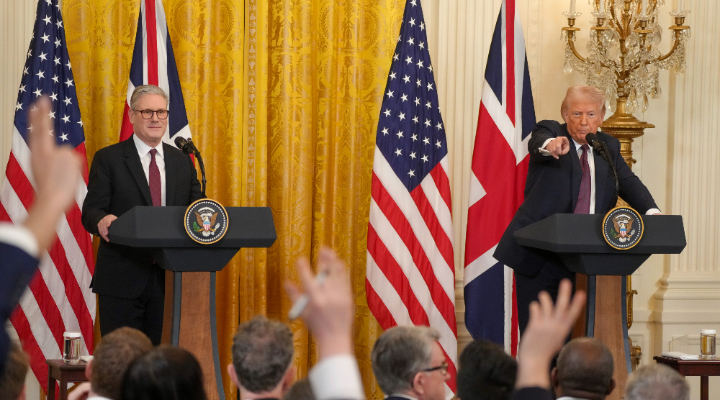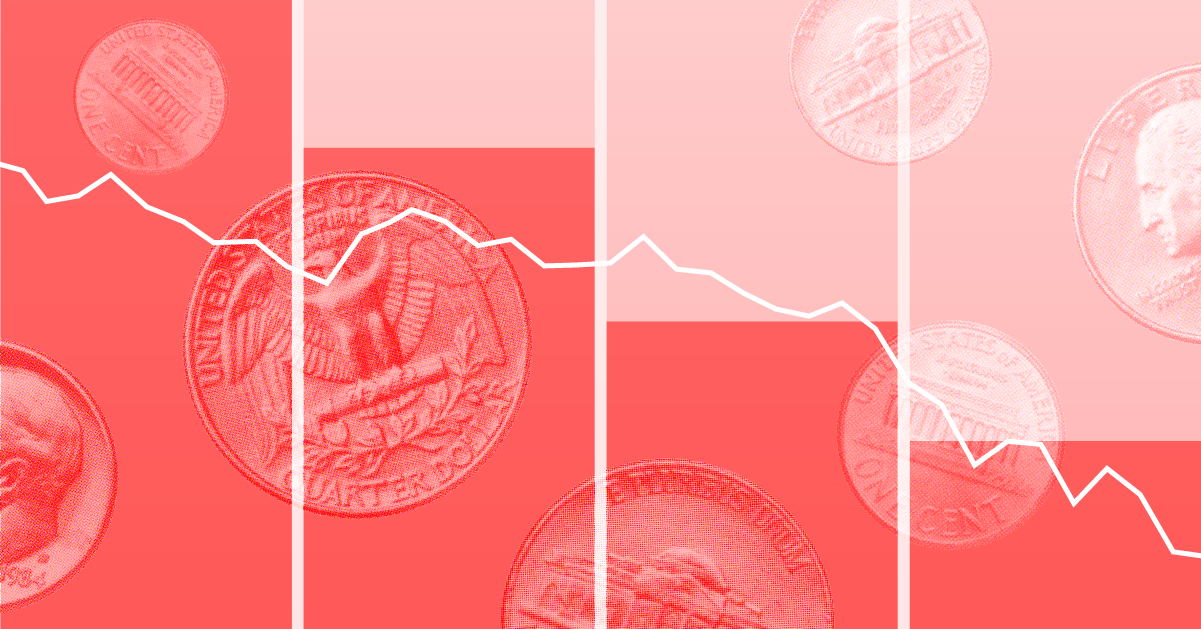From time to time, Morningstar publishes third party content under our "Perspectives" heading. If you are interested in Morningstar featuring your content, please contact Online Editor Holly Cook (holly.cook@morningstar.com). In this installment from INSEAD Knowledge, the thought leadership platform of INSEAD, one of the world’s leading and largest graduate business schools, Shellie Karabell talks to Timothy Condon of ING and Jaspal Bindra of Standard Chartered about their respective banks' recent history, and their outlooks for the global economy and US dollar.
It would be difficult to find two financial institutions more indicative of the plus and minus sides of the financial tsunami that hit the world of banking this year: On the one hand, ING, the venerable international Dutch bank, forced to go to the government for a 10 billion euro bailout and now facing public evisceration at the hands of EU regulators. On the other hand, Standard Chartered Bank, a bastion of banking in Asia since the era of British imperial rule.
Executives from both institutions attended INSEAD's Leadership Summit in Asia earlier this month and gave their perspectives on the aftermath of the crisis and the future of banking.
"The economic crisis hit ING hard," says Timothy Condon, Managing Director and Head of Research, ING Financial Markets. "The group was forced to go to the Dutch government for assistance, and as part of that assistance it has embarked upon a restructuring plan."
The EU regulators have forced ING to do more than just "restructure." They have forced ING to divest itself of its US operations (online banking ING Direct and online trading Sharebuilder), as well as divide its two main businesses: banking and insurance.
"The bancassurance model has been overturned," says Condon. "Focusing on insurance for the insurance side and banking for the banking side is the way to go; these are two different businesses, and the supposed synergies did not work."
This leaves ING focused on Eurozone banking, but still with a strong international strategy. "ING has identified areas where the group sees potential, and Asia is one of these," says Condon. "Singapore is the hub for our Asian operations but we also have offices in Shanghai, Seoul, Manila, Kuala Lampur, Bangkok ... we even have a presence in Mongolia. Management is willing to take risks where they see there's a good opportunity for growth: Central and Eastern Europe, Latin America, for example."
Standard Chartered did not need government bailout money; indeed, the bank was able to support some UK issues during the depths of the financial crisis. Jaspal Bindra, the bank's CEO for Asia, is more worried about the shape and extent of government regulations in reaction to the crisis.
"Who knows whether the consequences of this mandatory dismantlement are going to be healthy or not so in the future," he ponders at ING's situation at the hands of the EU. "But when you look at the politics of the situation, for the taxpayer to pay for the acts of a few individuals which led to this, as a result of greed or overstretching and expectant shareholders who have been far too demanding ... In that kind of situation you can sympathise (with the actions taken). The real issue is the balance. We think the EU is going a little bit a step ahead and probably setting the tone for the rest of the world."
But in the brave new world of financial services, we can expect to see both more regulation and a continuation of high-paying structured products. News reports say ING is developing a modified (that is, secured) hedge-fund type of vehicle to launch in the coming months. Condon himself says there is still a market for risk. "The idea that we're not going to see these structured products again is wrong. There's a need for them: clients need them and want them. Our business is to provide them. The industry ran into excess in 2008 ... there was something out of whack with structured products in 2008," he claims. "I think those kinds of excesses, at least for now, will be curtailed by the business itself; that business has shrunk."
Looking ahead, both Condon and Bindra agree that the markets have bottomed out, but they are divided as to whether there is another dip to come in the road to economic recovery.
"I cannot rule out the possibility of another dip," says Bindra. "Though what I put more certainty in, is the fact that the recovery will be very slow and gradual, particularly in the developed economies."
Condon is bullish on the US: "I think we've seen the low in US growth," he says. "We'll have a strong quarter in the fourth quarter; then maybe not back to the 3% potential in the US next year but something suitably close, and I think it'll be a booming year for Asia."
Some economic forecasts put growth in China at around 10% in the coming year, with Singapore also in double-digits. "Asia alone can't do it," warns Bindra, referring to the need for a locomotive to pull the global economy up the hill to recovery. "The world is a 61 trillion dollar economy; China is 4.4-trillion out of that, whereas the US and EU put together are about 30 trillion. So clearly if you put the US, EU and Japan together you have well more than half of the global economy, while if you put the BRIC countries together (Brazil, Russia, India, China) that's less than 15% of global GDP. So it will take a little bit longer for the global economy to come back in size."
The steadily-declining US dollar is another factor in the recovery equation. Part of the decline is apparently US policy: words from Washington indicate an "accommodative stance" on keeping interest rates (and, by extrapolation, the dollar) low. ING's Condon agrees and would even like to see more easing.
"The dollar, I think, is too strong," he says. "The US economy would be better off with a weaker dollar and faster growth; however, I don't see that level changing from the high 1.40s to 1.50 level against the euro and around 90 against the yen."
Standard Chartered's Bindra agrees the dollar is overvalued and sees some serious dollar divesting going on in the world, despite the greenback's position as the global reserve currency. "The reality is you're seeing a passive diversification out of the dollar," he says. "If you take the larger economies like China, they're moving into gold, they're moving into securing their energy needs for the future, they're bulking up on durable commodities--copper and the like. It's not in their vested interests to let the dollar crash, but they have a fear of the dollar devaluation in a gradual phase, and that is behind this passive diversification."
What is the alternative to the dollar as a reserve currency? "The whole situation is that there isn't an alternative," continues Bindra. "Europe has got its own challenges, sterling has its own challenges, the Chinese currency is not ready--it may have all the strength but it's not really convertible, it's not traded enough. So even if there will be a different (reserve) currency, it is still some time away. As we saw with sterling, after sterling peaked in terms of its economic performance it still remained the global reserve currency for another 50 years."
Published: November 24, 2009.
This article is republished courtesy of INSEAD Knowledge. Copyright INSEAD 2009























